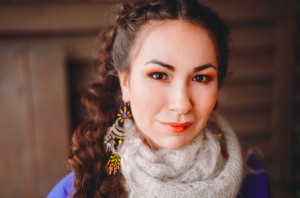© 2015 Aleksandra Alimovna SEVEN
2015 – №2 (10)
Key words: autism, autism spectrum disorders, autistic, ABA-therapy, special needs school, social adaptation, Asperger’s syndrome, visual schedule, socialization of children with autistism
Abstract: Alexandra Seven talks to the teacher and the director of the special needs school in Abakan where autistic children study. The school’s speech pathologist gives an account of education of children with mental and neurological disorders, the nature of the “Autism” disease, its manifestations, methods of social adaptation of autistic children and ways of psychological help provided to parents of “special children”. At the request of the interviewees, the text is published anonymously. The names of children are also omitted from the text.
Note:
* The article is also published in the paper edition:
Meditsinskaia antropologiia: kul’tura i zdorov’e. Sb. statei / otv. red. V.I. Kharitonova; In-t etnologii i antropologii im. N.N. Miklukho-Maklaia RAN; Assotsiatsiia meditsinskikh antropologov. – M.: IEA RAN, 2016. (Trudy po meditsinskoi antropologii). [Medical Anthropology: Culture and Health. Collection of articles / Ed. V.I. Kharitonova; Institute of Ethnology and Anthropology named after N.N. Miklouho-Maclay RAS; Association of Medical Anthropologists. – Moscow: IEA RAS, 2016. (Works on medical anthropology).]
I took this interview in 2016 in one of the special-needs schools of Abakan town in Republic of Khakasia. It is dedicated to the problem of infantile autism, methods of socialization of autistic children, difficulties which parents of autistic kids and teachers face. Quite a space in the interview is devoted to real-life examples shared by a speech pathologist and director of this school.
The speech pathologist tells me, using examples from her daily practice, about children with autism. She claims that there are no two similar autistic kids – all of them have different personalities, inclinations, passions, talents and manifestations of the disease. Children who can make quick operations with three-digit numbers, have good skills in painting, computer science and programming are illustrative in this respect. The teacher puts emphasis on benefits from parental encouraging of this talents. This will help the child to earn a living when adulthood comes and be accepted by society.
The problem of social and domestic adaptation of autistic children plays an important role. The teacher talks about positive examples of developing new useful habits by her students. The boy with an autistic disorder started to walk by different routes to the library and talk to other children after long-term education in the special-needs school.
The teacher also talks about another big problem – isolation of the “special” kids’ parents in Abakan. Parents do not tend to form groups united by similar difficulties. According to the teacher, formation of groups like these would have caused good influence on psychological state of parents. The speech pathologist describes that in Krasnoyarsk region parents communicate with each other, share their experiences, knowledge and support. They bought some land, built a house and take their kids to this outdoor place for staying in nature, communication and recreation purposes. Unfortunately, parents of autistic children from Abakan do not initiate this kind of activities.
The teacher points out another side of the problem: parents often either care too much for their children or deny their condition. Parents of autistic children in Abakan try to protect their kids from dangers and stress by going with them to school and staying during classes. This slows down the development of independence and socialization among children. Teachers usually ask parents to trust them: keep their child in school and go home. Subsequently, according to them, it leads to positive results: a child socializes faster and parents get some free time.
I want to emphasize that teachers from that school, despite lack of time and resources, ask parents of “special kids” to take their kids to them, not to the ordinary school. They say that will bring positive results into children’s development. The main factor is that social adaptation provided by the school will help children live independently.
This article is available in full version in Russian
